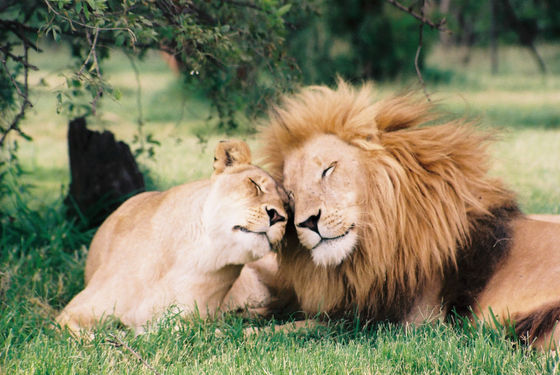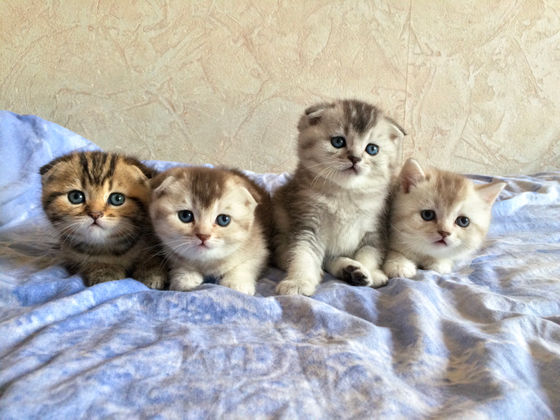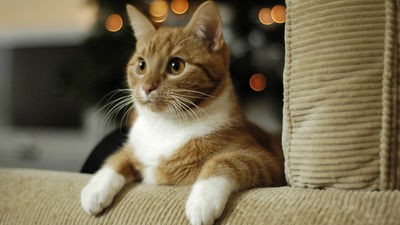It turns out that 'inbreeding is not taboo for animals', why choose inbreeding with many disadvantages?

Incest, in which children are born from close relatives such as human parents and siblings, is considered an immoral taboo in most societies. This is also scientifically supported by the fact that 'mating between genetically close individuals is more likely to cause genetic abnormalities.' However, recent studies have shown that 'many animals rarely consider blood connections when choosing a partner to have children.' Ethology experts explain why animals exposed to fierce competition for survival do not avoid inbreeding, which has many disadvantages.
Meta-analytic evidence that animals rarely avoid inbreeding | Nature Ecology & Evolution
Incest isn't a taboo in the animal kingdom – new study
https://theconversation.com/incest-isnt-a-taboo-in-the-animal-kingdom-new-study-160937
While in favor of diversity is increasing survival of the gene and mating with each other who do not have blood relatives, fitness is low individual increases and inbreeding advance inbreeding depression will occur. Therefore, the general idea that animals should instinctively avoid inbreeding.

by
So, Laissa Debourg and Regina Vega Trejo, who study ethology at Stockholm University and Lund University in Sweden, have collected data from 139 studies on animal mating tendencies published in the last 40 years. We extracted and analyzed it using a technique called meta-analysis to verify 'Are animals really avoiding inbreeding?'
The research data collected by Debourg and colleagues included records of the mating of 88 diverse organisms, including mammals such as rodents and snails, which are hermaphroditic creatures such as birds, fish, spiders, and males and females. That thing. As a result of integrating these data, we found that only 17% of the cases showed a tendency to avoid inbreeding. From this, De Boer and colleagues conclude in their paper that 'some animals have no tendency to distinguish between relatives and non-relatives when choosing a spouse.'
The first possible reason for animals to choose inbreeding is 'there is no other choice'. Certainly, inbreeding has its disadvantages, but breeding even inbreeding is more advantageous in retaining your own genes than leaving no offspring at all. In addition, animals want to keep as much of their genes as possible, as renowned biologist Richard Dawkins showed in his book The Selfish Gene. Based on this, since my parents and siblings have many of the same genes as me, in a sense, it can be said that inbreeding is more advantageous in leaving genes.

Also, to avoid inbreeding, you need to develop the ability to identify who is your close relative, which is costly. Therefore, 'in some cases, it is advantageous in terms of survival strategy to divert the energy that can be used to avoid inbreeding to breeding,' De Boer and his colleagues pointed out.
De Boer's theory is also supported by studies using mathematical modeling. In this study, 'the risk of inheriting genetic diseases and genetic defects' is set as a demerit, and 'the ability to leave genes more efficiently and increase the chances of mating' is set as a merit, and each is quantified. I made it and simulated it on a computer. As a result, it was found that the 'model that allows inbreeding' is the most successful strategy, even if factors such as the habitat and the number of individuals living there are taken into consideration.
De Boer et al. Noted that animals do not tend to avoid inbreeding, saying, 'The data used are experimental results under artificial control, which affects the choice of mating partner. The conditions given may differ from those in the natural world. '
On top of that, De Boer and colleagues said, 'Many attempts to protect endangered animals, such as giant pandas, aim to breed unblooded individuals, but animals are inbreeding if they have the option. Now that we know that we may choose, we may need to consider this in the future. Inbreeding is a bad thing from a genetic diversity standpoint, but at least it gives birth to a new generation. Because it will make you do it. '
Related Posts:







